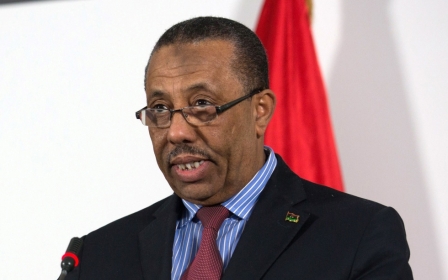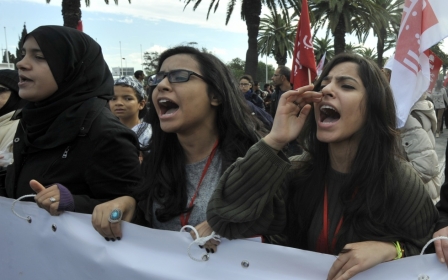Second diplomat kidnapped in Tripoli in one week

A Tunisian diplomat was kidnapped in Tripoli on Thursday, an unnamed Libyan security official told AFP, just two days after armed men abducted Jordan’s ambassador.
The diplomat has been identified as Al-Aroussi Kontassi by a Tunisian source who spoke to AFP. Ridha Boukadi, Tunisia’s ambassador to Libya, refused to comment.
Unknown assailants snatched Kontassi near the central Al-Kadissiya square not far from the Tunisian embassy, according to a Tripoli police official quoted by the local Al-Wassat news website.
It is the second time in a month that a Tunisian diplomat has been kidnapped in Tripoli. An employee of the same embassy was seized on 21 March. His fate remains unknown.
A number of foreign diplomats have been kidnapped by militia groups in recent months to secure the release of Libyans jailed in other countries. The weak interim government has been unable to disarm the militia groups that helped topple Gaddafi and they continue to wield significant influence in fragile political conditions.
Stay informed with MEE's newsletters
Sign up to get the latest alerts, insights and analysis, starting with Turkey Unpacked
Analysts say this latest incident is likely to have similar motives, but that a lack of information about the kidnapping means it is hard to know the full interests at play.
“There has been lots of talk about the presence of Tunisian jihadists in Libya, some of whom have been arrested, so today’s kidnapping could be motivated by either a desire to see Tunisians released or be about Libyans jailed in Tunisia,” Mohamed Eljarh, Libyan analyst for Foreign Policy, told Middle East Eye.
Eljarh believes that the kidnapping likely involved either the Tunisian chapter of Ansar al-Sharia, seeking the release of their jailed leader, or a Libyan militia who want a bargaining chip to win the release of Libyans imprisoned in Tunisia.
Saifallah Benhassine, the leader of the Tunisia branch of Ansar al-Sharia, was arrested in Misrata last December. Two months later, a rocket-propelled grenade attack on the Tunisian Embassy in Benghazi was reported to be carried by the group as a retaliation against Libyan and Tunisian authorities who had acted together in Benhassine’s arrest.
Ansar al-Sharia has branches across the region and is a militia group that advocates for the implementation of a strict version of Islamic law. The Libyan branch rose to prominence during the 2011 uprising that led to the removal of Muammar Gaddafi and was also linked to the 2012 attack on the US Embassy in Benghazi that killed the American ambassador.
US authorities have designated the Libyan and Tunisian chapters of Ansar al-Sharia terrorist groups.
The Jordanian ambassador, also kidnapped this week, was taken off a Tripoli street by masked gunmen who are demanding the release of a Libyan imprisoned in Jordan. Mohamed Dersi was jailed for life in 2007 for planning a terrorist attack on the main airport in Jordan.
Last month, five Egyptian Embassy staff were abducted in Tripoli by a militia group whose leader was being held in a Cairo prison. Egypt freed Libyan military commander Shabaan Hadiya shortly after the diplomats were released.
Analysts say even pro-government militias are unwilling to protect foreign diplomats from potential kidnap.
“Pro-government militias will not protect foreign embassies or their staff because they want the government to appear weak in order to extort further political and financial gains from them,” Jason Pack, researcher of Middle East history at Cambridge University and president of Libyaanalysis.com, told MEE.
Lawlessness has given rise to favourable conditions for potential kidnapers, and with militias successfully using foreign diplomats to achieve the release of prisoners, these incidents are likely to keep happening.
“Unless the Libyan government and international community take responsibility for the dire state of instability, it is likely this cycle of kidnappings will continue for months, or even years, to come,” Libyan analyst Eljarh told MEE.
Middle East Eye delivers independent and unrivalled coverage and analysis of the Middle East, North Africa and beyond. To learn more about republishing this content and the associated fees, please fill out this form. More about MEE can be found here.



